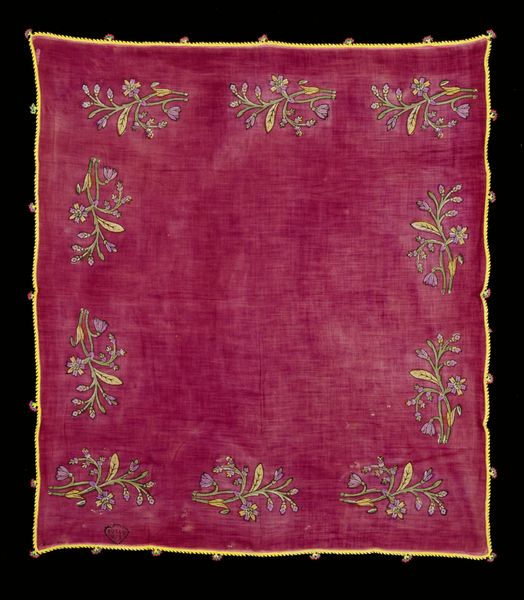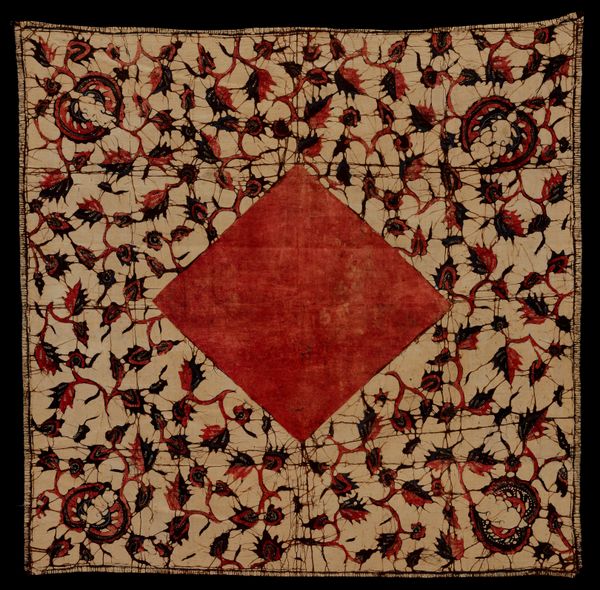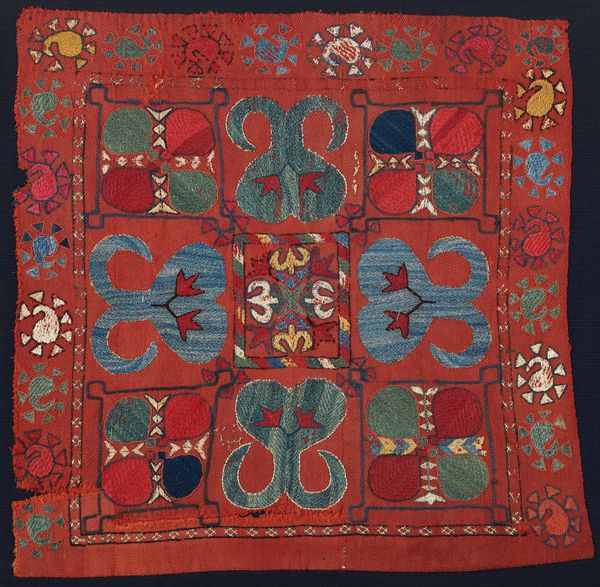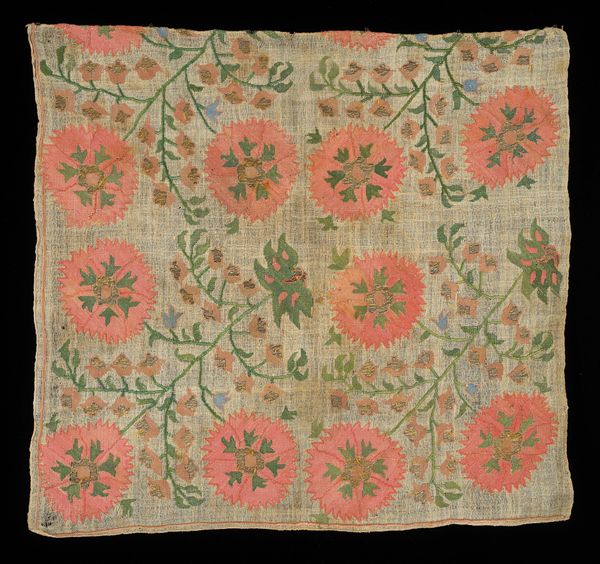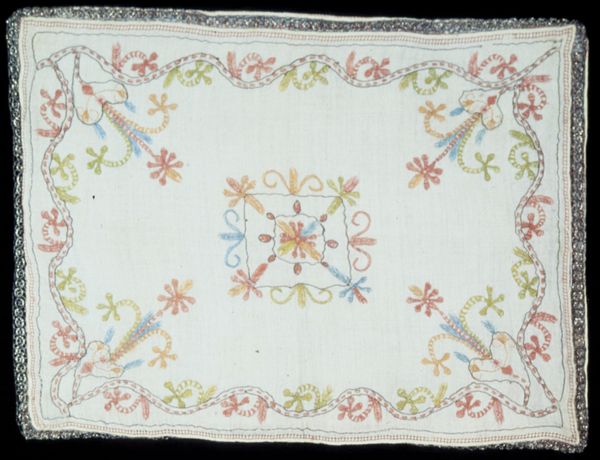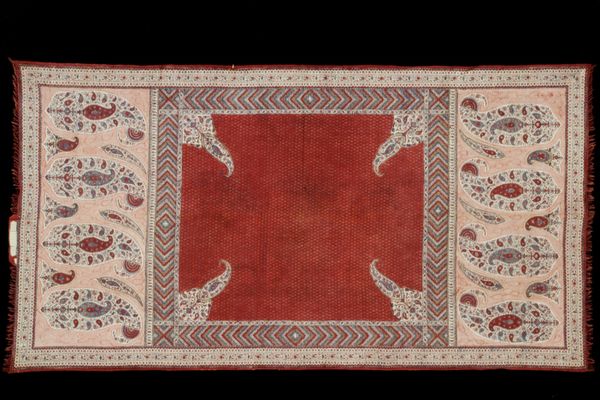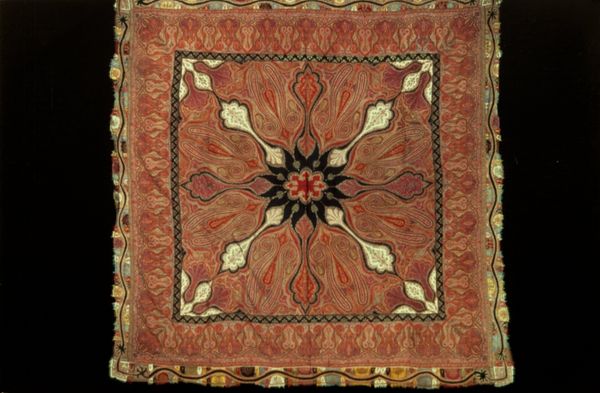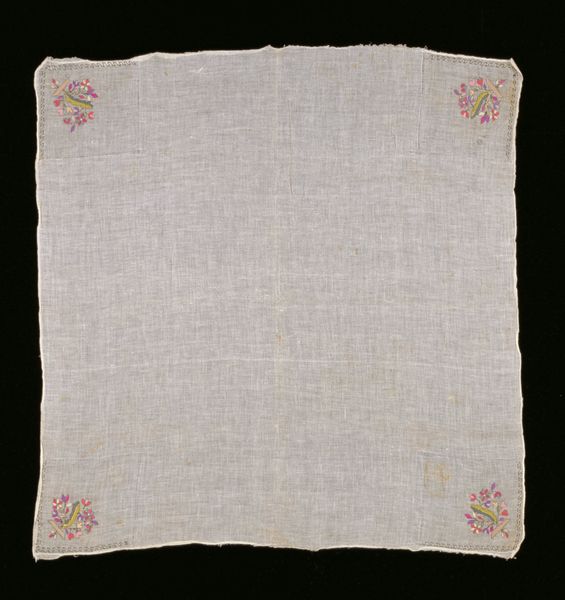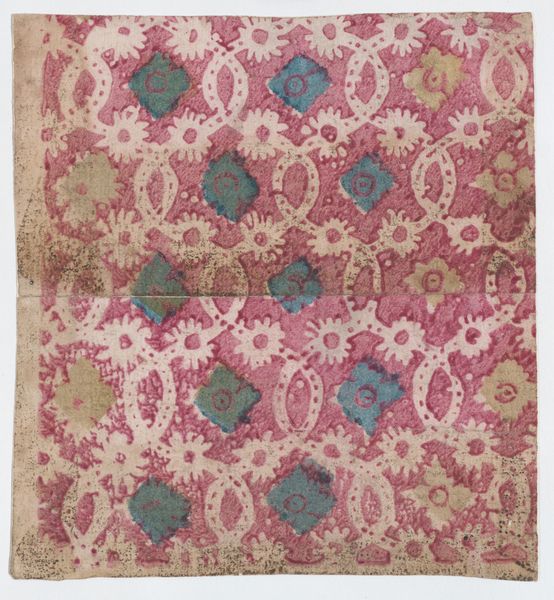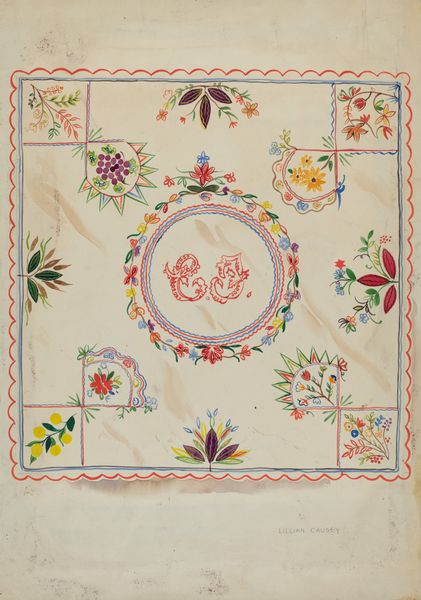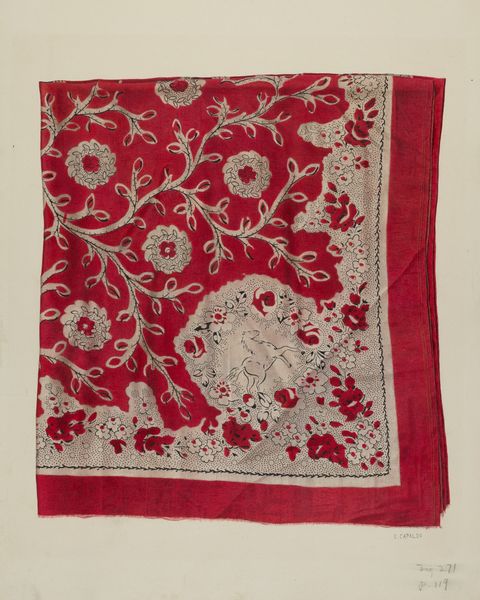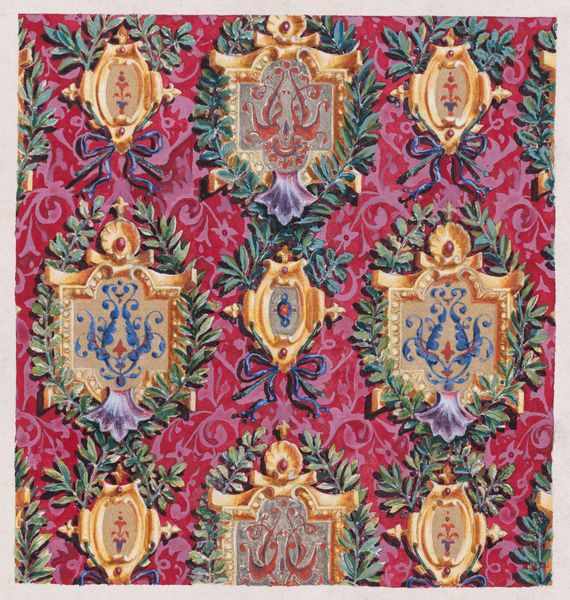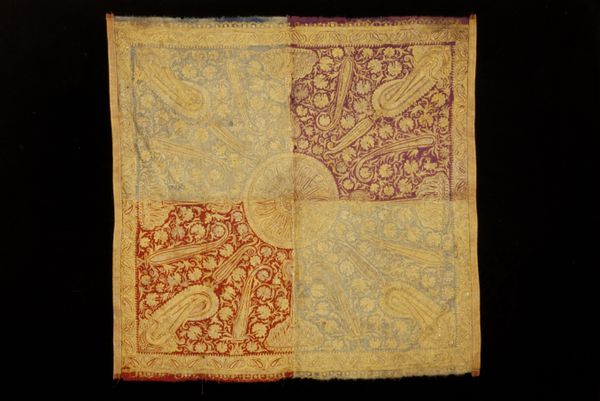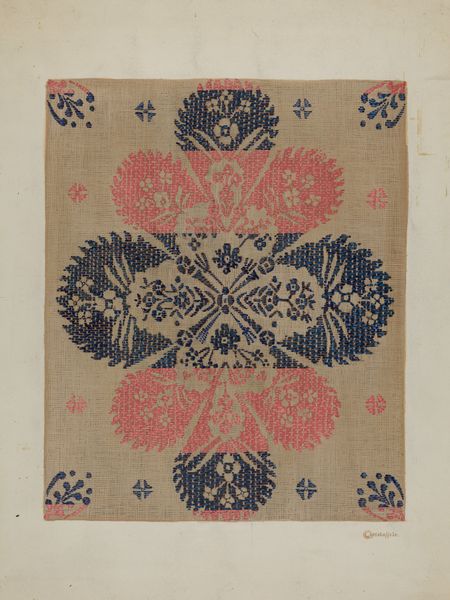
textile
#
organic
#
textile
#
organic pattern
#
flower pattern
#
textile design
#
decorative-art
Dimensions: 20 1/2 x 20 3/4 in. (52.1 x 52.7 cm)
Copyright: Public Domain
Curator: Here we have an exquisite example of ecclesiastical textiles: a chalice veil dating back to the 19th century. The object is held in the collection of the Minneapolis Institute of Art. Editor: My immediate impression is one of delicacy and considered geometry. The fabric, likely silk, presents an almost coral flatness that's then beautifully disrupted by the embroidered ornamentation. Curator: Indeed. The interplay between the ground and the embellishments is meticulously crafted. Note the repeating motif of grapes and vines—theologically symbolic of the Eucharist. The border is delicately scrolling, but its rhythmic curves contain small white blooms. Editor: Those grape clusters—some in purple, others white—introduce an interesting chromatic tension, don't they? Also, it’s important to look at the four leaves. I wonder if there's an allegorical link to the four Gospels suggested by that careful positioning. These floral motifs are also icons of transformation, echoing Christian beliefs in rebirth. Curator: A compelling interpretation! Focusing on the compositional elements, it is evident that the anonymous artist deliberately avoided strict symmetry. Look closely, the design is not identical on each side. This gives the work an organic feel. Editor: Perhaps a nod to nature's own asymmetry reflected in a religious context. Overall, it reveals a deeply woven narrative about sacrifice and redemption. What appears merely decorative in the 19th century still carries deep symbolic and historic meanings. Curator: Yes, both in terms of the material properties and symbolic weight it continues to provoke complex thoughts, whether from formalist or iconographic perspectives. Editor: It leaves you thinking about how motifs change their power over time, doesn't it?
Comments
No comments
Be the first to comment and join the conversation on the ultimate creative platform.
